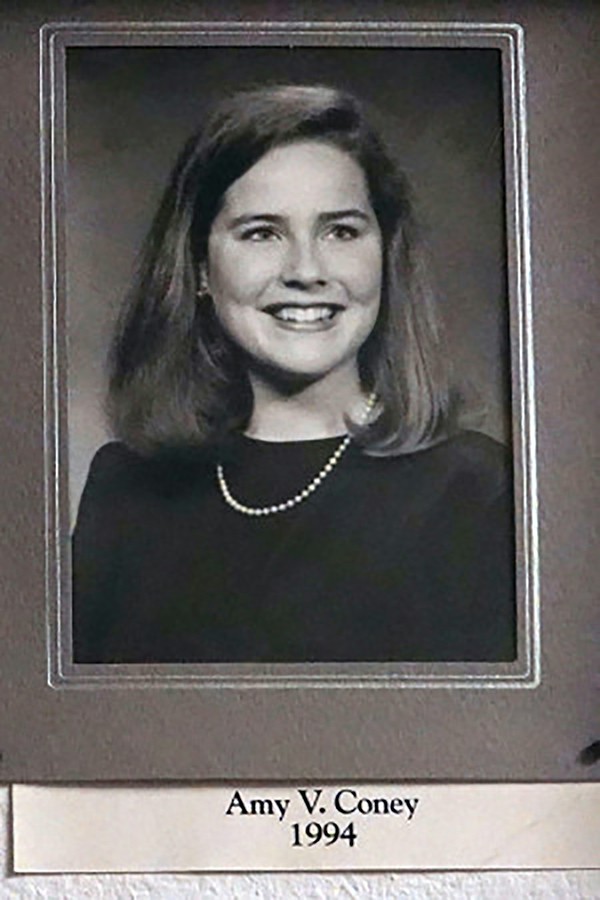So we stand at Armageddon, doing battle for the Lord, do we? That’s the essence of what you hear these days from diehard Democrats and other self-declared liberals, and, as often as not, this desperate war cry is sounded, not about the forthcoming presidential election, but about President Trump‘s nomination of one Amy Coney Barrett to be the next Supreme Court Justice.
Both the Affordable Care Act (ACA) and Roe v. Wade are on the chopping block, you hear, and Barrett as a freshly confirmed Justice, will start wielding the axe as soon as the high court begins hearing the ACA case in mid-December. No one doubts that the Republicans have the numbers to confirm Trump’s nomination of Barrett, and no one doubts her determination, along with five GOP-appointed colleagues, to slash away at ACA, Roe, and any number of other Democratically inspired legal landmarks having to do, say, with labor relations, voting rights, and firearms issues.

The sky, say many, is falling, while those of more conservative persuasions cry, “Let it fall!” But who is this Amy Coney Barrett, this imagined scourge of things as they are and harbinger of a vastly different constitutional future?
As it turns out, there are those among us who shared turf and air with her when she was a student at Rhodes College in the early 1990s, and at least one somewhat younger Memphian, current City Councilman Worth Morgan, for whom Barrett once served as a babysitter. Former Councilman Shea Flinn was at Rhodes when Barrett was, and remembers her as “an attractive KD” (member of the Kappa Delta sorority), but that’s about it.
My son Justin Baker, another Rhodesian, remembers her similarly, but has no personal memories, nor does Kemp Conrad, yet another council member who was aware of her presence on campus: “Rhodes was small. You could notice people without knowing them.”
But Chris Gilreath, a transplant from Knoxville, lawyer, and Rhodes Class of ’94 grad, like Barrett, not only remembers the young, ultra-serious student from New Orleans, he seems to have faith in her sense of fairness. In a statement on his Facebook page, he put it this way:
“I went to Rhodes with Amy Coney Barrett. We’re both in the Class of 1994. I dated one of her sorority sisters. Amy was friendly and personable, just as she is now. Rhodes challenged us to think critically about big issues and wrestle with them, arriving at enlightened answers after vigorous debate.
“I’m liberal-minded and a Democrat. I oppose several of the perspectives and conclusions Amy draws on significant legal issues. But she’s a really good person.”
Gilreath was aware that his classmate was a serious Catholic (a fact that all her biographies make clear) and one clearly prone to rely on the elements of her faith. As a student, she was “strictly the academic type” but friendly enough. Rhodes, then as now, had active Democratic and Republican cadres on campus, but Gilreath does not remember that she took part in any activity.
“We can disagree without tearing others down,” says Gilreath. “I’ve never personally known a Supreme Court pick until now. For her sake, I hope the debate is about her philosophy and politics, not about who she is” — the “who she is” aspect reflected in the generally favorable viewpoints others have had of her.
“I regret that Amy has to live through the coming circus. She deserves better — and so do we,” says Gilreath.
Meanwhile, how much of the sky is really falling? Yes, the high court is scheduled to rule on the constitutionality of the Affordable Care Act (Obamacare) in mid-December, and, yes, it is highly possible Barrett will be ensconced as a Justice by then and will tip the balance against the ACA. What then? Should the Democrats win the presidency and both houses of Congress, they would then have the impetus to vote in one of the several Medicare-for-All measures they discussed during their primary debates earlier this year.
Roe v. Wade is a chancier circumstance. Famously, there has so far been no middle ground between proponents and opponents of legalized abortion. Perhaps it is not impossible that a conservative SCOTUS under the institutional-minded John Roberts, and including Barrett, could find one. Stranger things have happened.